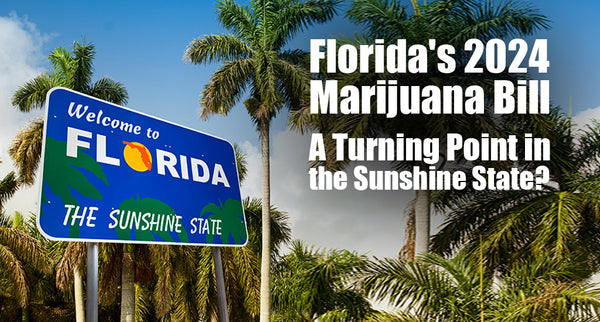
States Provide Crucial Marijuana Data to Biden Administration for Rescheduling Evaluation
Five states with medical marijuana programs have shared important information with U.S. health regulators as part of the Biden administration's review of whether marijuana should be removed from the federal government's list of the most dangerous drugs.
This data, sent to the U.S. Food and Drug Administration and the Department of Health and Human Services, gives federal researchers a better understanding of marijuana use and its medical potential compared to existing studies. The aim is to influence the federal review of marijuana's status under the Controlled Substances Act, which currently prevents federal marijuana reform, including interstate commerce and tax relief. President Joe Biden initiated this review last fall.
Illinois, Maryland, Massachusetts, Minnesota, and Utah have already shared information with federal health regulators about marijuana use in their respective states. This data is considered highly significant, providing insights into the products people are using and their potential health effects. The encouragement to share this information came from the Cannabis Regulators Association, an organization composed of government officials overseeing state programs.
This revelation offers a rare glimpse into the administrative rescheduling review process, which has been kept relatively secret by federal health officials. The data from state programs is considered crucial as it sheds light on marijuana usage patterns and health outcomes. While significant funds have been invested in studying the risks of illegal cannabis, there has been limited research on legal commercial marijuana. State-level data fills this gap and provides essential information comparable to what pharmaceutical companies study.
States like Minnesota have shared a subset of their data with the FDA, including information collected from patients about their cannabis purchases and optional surveys about their experiences. Adverse events, such as drug interactions, have been reported but are generally minimal. The FDA has yet to respond to the states that shared this information.
Massachusetts officials have also submitted data to the FDA, including approved medical conditions for cannabis use, cannabinoid profiles of medical-use products, and patient purchasing frequency and quantity. Massachusetts looks forward to continuing to collaborate with state and federal partners to promote additional research and data-sharing to influence national policy.
The paradox remains that current federal drug laws hinder and discourage cannabis research. Despite a marijuana research bill signed into law by President Biden, no new research protocols or sources of research-grade cannabis have emerged. Critics argue that the research bill's shortcomings were intentional. Federal officials consistently assert the need for more research before considering changes to marijuana prohibition.
Existing marijuana research in the U.S. primarily examines cannabis supplied by approved sources authorized by the Drug Enforcement Administration. However, this supply does not accurately represent the marijuana available in state-legal medical dispensaries. When determining the appropriate classification of a drug under the Controlled Substances Act, the FDA employs an "eight-factor analysis." This analysis considers factors such as the drug's potential for abuse, pharmacological effects, current scientific knowledge, history of abuse, and public health risks.
The FDA traditionally relies on peer-reviewed academic studies for this analysis, but the limited number of such studies highlights the hindrance caused by marijuana's legal status. State medical cannabis programs collect valuable data on patient use, clinical recommendations, and adverse events, primarily for consumer safety and regulatory purposes. Sharing this data with the FDA is crucial to conduct a comprehensive analysis that includes real-world data from states and territories.
The outcome of the federal rescheduling review remains uncertain. While many acknowledge that cannabis should not be classified as a Schedule 1 substance alongside dangerous drugs like heroin and LSD, the extent of the recommendation from federal health officials and its acceptance by law enforcement remains unclear. The variety of cannabis use and associated risks further complicate the analysis. Although experts believe that marijuana is unlikely to be completely removed from the Controlled Substances Act, any changes could impact federal taxes, financial services, and state frameworks. Demonstrating the medical benefits of marijuana, especially for pain management, is important, but the ultimate decision rests with federal regulators, making their intentions difficult to ascertain.
Leave a comment
Comments will be approved before showing up.



